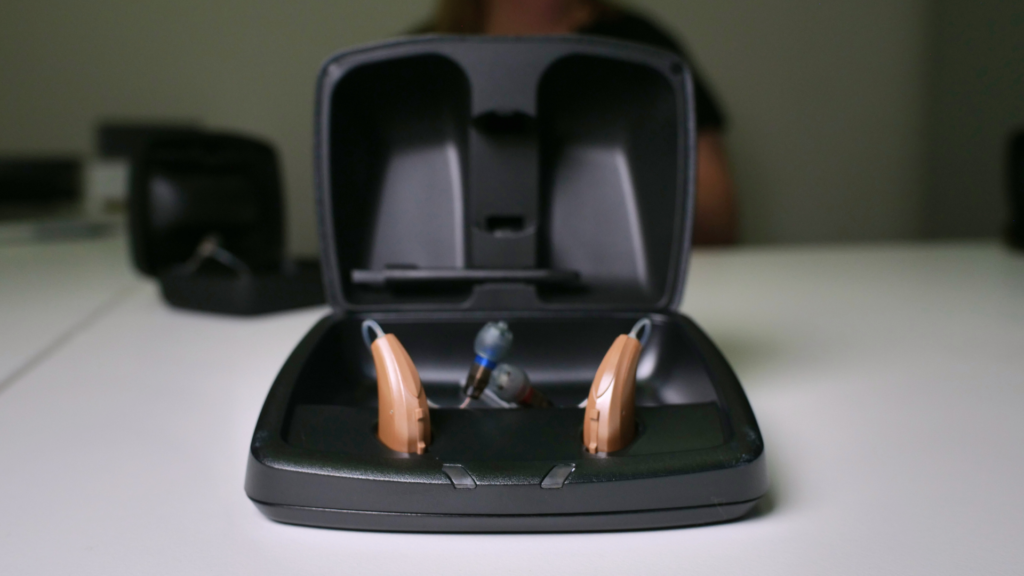Hearing is a gift many of us take for granted, yet for countless Australians, hearing loss is a daily challenge that affects their quality of life. Thankfully, there’s good news. The Australian Government has rolled out the Hearing Services Program (HSP) to help those facing hearing difficulties. Through the HSP, eligible individuals can access various supportive services and devices that can make a difference in their auditory experiences.
Wondering if you or your loved ones qualify for the HSP? Here’s a simple checklist. You need to be an Australian citizen aged 21 or over and fall into any one of these categories:
- Holder of a Pensioner Concession Card
- Holder of a Department of Veterans Affairs Gold Card
- Holder of a Department of Veterans Affairs White Card (with hearing loss specified)
- Recipient of Sickness Allowance from Centrelink
- Dependent of a person in one of the above categories
- Member of the Australian Defence Force
- Referred by the Disability Employment Services Program
And if you don’t tick any of these boxes, don’t worry! You might still be eligible under the HSP Community Services Obligations (CSO) component.
In this blog, we’ll unravel the four core benefits offered by the HSP, shedding light on how these perks can provide significant support to Australians with hearing loss.
Whether it’s you or a loved one navigating through the challenges of hearing impairment, understanding the HSP benefits could be your first step towards better hearing and improved communication in your daily life.

Benefit 1: Comprehensive hearing assessments from qualified audiologists
Identifying any hearing issues early can significantly impact how effectively you can manage them. It’s akin to catching a train—the earlier you get on, the more control you have over your journey.
Under the HSP, skilled audiologists will perform detailed checks to pinpoint the level and type of your hearing loss, ensuring you’re not sailing into the unknown.
Your first consultation will be a blend of discussions and tests. Expect questions about your general health, hearing experiences, needs, and goals. It’s all about gathering the coordinates to plot the right course.
Post-assessment, your audiologist will discuss the results with you, shedding light on any treatment options. It’s like being handed a compass to help you navigate the options.
Benefit 2: Subsidised hearing devices
The cost of hearing aids can be daunting. The HSP addresses this concern by offering financial support and making hearing aids accessible without the substantial expense.
You are entitled to a fully subsidised hearing device through the program at no extra cost. These devices are well-equipped to aid you in numerous listening situations, enhancing your auditory experience.
On the other hand, if you need additional features, you can explore partially subsidised hearing devices. Though they come with an extra cost, they boast more features to manage different listening environments better. The program will cover the cost equivalent to that of a fully subsidised device, and you would cover the rest, which could be significant.
It’s noteworthy that your private health insurance might cushion you against some of these extra costs. And remember, the choice between fully and partially subsidised devices rests entirely with you. Your provider will explain the benefits of a partially subsidised device and inform you about the equally effective fully subsidised alternatives.
Benefit 3: Ongoing professional support and rehabilitation
Under the HSP, you can also take advantage of the continued support from professionals on achieving the maximum benefit from your hearing device.
However, rehabilitation is a viable path if you’re facing hearing challenges and prefer not to use hearing devices. You can avail of this service from your provider within a year following your initial assessment. They will equip you with training and strategies to mitigate the effects of hearing loss and enhance your communication skills. This training may also extend to family members or carers, ensuring a supportive environment.
For those eligible, a special program called Rehabilitation Plus (Rehab Plus) is on offer, especially if you’re getting a fully subsidised device through the program for the first time.
Rehab Plus empowers you with the knowledge to manage your hearing loss more effectively and learn various communication tactics and strategies. For a deeper insight into Rehab Plus and to determine your eligibility, feel free to discuss with your provider.
Benefit 4: Annual maintenance agreements
When it comes to ensuring your hearing devices’ optimum performance and longevity, the HSP presents an attractive proposition: the Optional Annual Maintenance Agreements.
Under this provision, you can secure repairs and batteries for your hearing devices throughout the year for a modest fee.
If you choose a maintenance agreement, you may be required to pay an annual fee, and the program pays the provider a subsidy to maintain your device.
Maintenance agreements cover:
- appropriate battery supply
- adjustments and re-programming if required (including one phone or accessory reconnection service per agreement)
- repairs to the device except rechargers for rechargeable devices
- necessary components for the functioning of the device (for example, earmoulds, thin tube and dome replacement)
- hearing aid cleaning
Freedom Hearing is an Accredited HSP Provider
The HSP is a remarkable initiative, underscoring the government’s commitment to supporting individuals with hearing impairments. It’s an invitation to a better quality of life, waiting to be explored and utilised.
Engage with accredited providers like Freedom Hearing, consider the offered services, and take proactive steps towards improving your hearing health.
CONTACT US if you need more information about HSP or call 1300 689 085.
Disclaimer: The information provided in this blog is intended to be general, providing an overview of hearing loss and hearing aids. It should not be used as a substitute for professional advice. Everyone’s hearing needs are unique, and the best solution for you should be determined through consultation with a qualified hearing healthcare professional. Always seek the advice of an audiologist or other qualified health provider with any questions regarding a medical condition or treatment.
